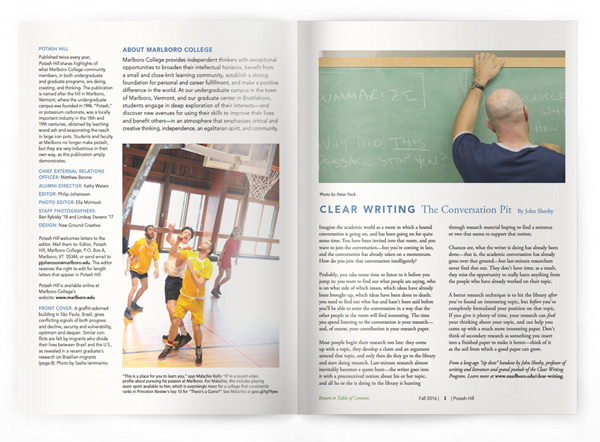Clear Writing

The Conversation Pit
By John Sheehy
Imagine the academic world as a room in which a heated conversation is going on, and has been going on for quite some time. You have been invited into that room, and you want to join the conversation—but you’re coming in late, and the conversation has already taken on a momentum. How do you join that conversation intelligently?
Probably, you take some time to listen to it before you jump in: you want to find out what people are saying, who is on what side of which issues, which ideas have already been brought up, which ideas have been done to death; you need to find out what has and hasn’t been said before you’ll be able to enter the conversation in a way that the other people in the room will find interesting. The time you spend listening to the conversation is your research—and, of course, your contribution is your research paper.
Most people begin their research too late: they come up with a topic, they develop a claim and an argument around that topic, and only then do they go to the library and start doing research. Last-minute research almost inevitably becomes a quote hunt—the writer goes into it with a preconceived notion about his or her topic, and all he or she is doing in the library is hunting through research material hoping to find a sentence or two that seems to support that notion.
Chances are, what the writer is doing has already been done—that is, the academic conversation has already gone over that ground—but last-minute researchers never find that out. They don’t have time; as a result, they miss the opportunity to really learn anything from the people who have already worked on their topic.
A better research technique is to hit the library after you’ve found an interesting topic, but before you’ve completely formulated your position on that topic. If you give it plenty of time, your research can feed your thinking about your topic, and can help you come up with a much more interesting paper. Don’t think of secondary research as something you insert into a finished paper to make it better—think of it as the soil from which a good paper can grow.
From a long-ago “tip sheet” handout by John Sheehy, professor of writing and literature and grand poobah of the Clear Writing Program. Learn more. Photo by Peter Peck
